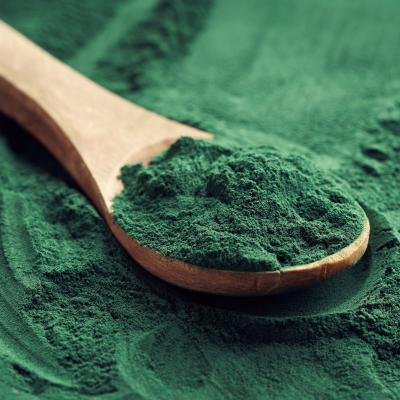Our current agricultural and manufacturing systems come with negative environmental and ecological impacts such as pollution, habitat destruction and emissions from fossil fuel burning. To meet the goals of the European Green Deal and limit these impacts, new processes need to be found.
Algae present an environmentally friendly solution with a wide range of potential uses as a fuel, food source and material for manufacturing. However, microalgae products currently struggle to achieve the same economies of scale as conventional products, making them underexploited as a crop.
To scale up and lower the costs of microalgae production, the MULTI-STR3AM project aims to demonstrate the integration of different technologies within a centralised biorefinery.
Mariana Doria, MULTI-STR3AM project coordinator
In the CBE JU-funded MULTI-STR3AM project, researchers are developing a biorefinery for microalgae products. They are integrating several technologies to lower production costs and boost scale and sustainability.
'To scale up and lower the costs of microalgae production, the MULTI-STR3AM project aims to demonstrate the integration of different technologies within a centralised biorefinery, in a production model that is both sustainable and economically viable,' says Mariana Doria, innovation manager at A4F-Algafuel in Portugal and MULTI-STR3AM project coordinator.
Developing new microalgae products
Microalgae have a vast biosynthetic potential and are a rich source of lipids, protein and high-value compounds such as pigments.
Mariana Doria, MULTI-STR3AM project coordinator
Industry partners Upfield, ForFarmers and IFF are testing and evaluating these fractions to find the best candidates for pilot and demo scales, and in vivo trials.
They will then be integrated into formulations of edible spreads, animal feed ingredients for poultry, pigs and ruminants, and other organic compounds for use in the fragrance industry.
'Microalgae have a vast biosynthetic potential and are a rich source of lipids, protein and high-value compounds such as pigments,' notes Mariana Doria, innovation manager at A4F-Algafuel in Portugal and MULTI-STR3AM project coordinator.
Creating a microalgae biorefinery
The construction of the MULTI-STR3AM biorefinery involved revitalising an abandoned industrial site.
Mariana Doria, MULTI-STR3AM project coordinator.
To create these products, the team successfully achieved a scaling up of microalgae production from 1 m3 to almost 100 m3. This led to a biorefinery with a capacity to process 10 tonnes of biomass per year.
'This biorefinery was designed to process multiple microalgae species using different technologies and providing different products,' adds Mariana Doria, MULTI-STR3AM project coordinator. The construction of the MULTI-STR3AM biorefinery involved retrofitting an abandoned industrial site and revitalising old installations into a sustainable biorefinery for the future.'
The MULTI-STR3AM biorefinery was designed to use diverse species of microalgae to generate several high-value ingredients. By using different biomass feedstocks and integrating industrial waste streams provided by the production units, the biorefinery offers a zero-waste approach to operations.
Positive feedback
The project has already achieved several important results. One is the integration of industrial sidestreams, such as nitrogen-rich effluent and industrial brine effluent, as feedstock for microalgae cultivation.
The biorefinery has produced 26 microalgal samples for testing in food, feed and fragrance applications, from spirulina, Dunaliella, Nannochloropsis and Chlorella.
Some products are already being tested by end users, whose feedback is informing the ongoing development of the biorefinery. During the final year of the project, which ends in April 2025, partners will expand their trials, scale up their prototypes for further testing and evaluate the formulation of products.
To boost microalgae productivity, optimise biorefining processes and support industrial partners, the project also involves IMIC, iBET and LNEG.
'As the biorefinery expands and more equipment is commissioned, process optimisation is an ongoing process to reach the best conditions for microalgae fractioning and purification and refining,' concludes Mariana Doria, MULTI-STR3AM project coordinator.

